LATEST NEWS
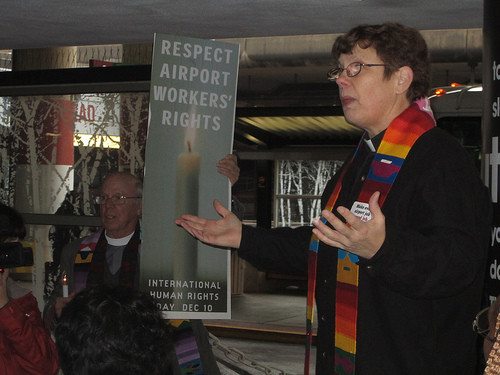
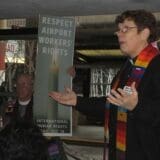
December 12 marked the 65th anniversary of the United Nations’ Universal Declaration of Human Rights. Probably most of us think first of human rights on the political level: the rights of people, especially of political prisoners across the world, to speak, assemble and write, free of government constraint.
In Seattle a group of about 100 workers, community, labor and faith leaders celebrated Human Rights Day at Seattle International Airport (SEATAC) in a different context. We were there in support of airport workers subcontracted by Alaska Airlines, which is based here: baggage handlers, wheelchair operators, cabin cleaners and aircraft fuelers. As we paraded by the Alaska ticket counters we adapted and chanted phrases of the U.N. Declaration: “…May everyone have the right to just wages…May everyone have the right to human dignity.
Socrates, a baggage ramp employee who works for Menzies Aviation, the subcontractor (and a multinational company that contracts with airlines in 29 countries),
» Read more about: Restless in Seattle: Airport Workers Seek Dignity »


Progressives are rarely satisfied. It is part of our political DNA. There’s so much injustice in the world, it’s sometimes hard to feel that we’re making progress. But as Chinese philosopher Laozi reminded us, a journey of a thousand miles begins with a single step.
As I document in my book, The 100 Greatest Americans of the 20th Century: A Social Justice Hall of Fame, the radical ideas of one generation are often the common sense of the next generation. One hundred years ago, ideas like Social Security, the minimum wage and women’s suffrage were considered radical. Fifty years ago, most African-Americans in the South couldn’t vote, few women were welcome in politics and many professions, and all but a handful of gays and lesbians were locked in the closet. In other words, if we take a long view, we can see that things do often change for the better,
» Read more about: Peter Dreier’s Top 25 Progressive Victories of 2012 »


Using data from the American Consumer Satisfaction Index, Business Insider writer Max Nisen has compiled a list of companies with the worst customer service ratings. (This came to us via LA Observed.) Read and weep! It’s not as though many people can easily avoid these outfits – they tend to be regional monopolies or dominant companies in their fields.
In order of unhelpfulness, they are:
1. Long Island Power Authority (color them Sandy)
2. Northeast Utilities (New England)
3. Charter Communications Television Service
4. Comcast Television Service
5. Facebook
6. United Airlines
7. Time Warner Cable
8. LinkedIn
9. Cox Communications Television Service
10. American Airlines
11. Twitter
12. US Airways
13. Delta Airlines
14.
» Read more about: Customer Service: The 15 Worst Companies »


There’s a moment in Mordecai Richler’s novel, The Apprenticeship of Duddy Kravitz, in which a Montreal old-timer rapturously recalls the early rise of a shady neighborhood businessman:
“All that time he’s collecting streetcar transfers off the street and selling them, see. Nerve? Nerve.”
Yesterday Americans began reading about a different kind of business nerve. According to the New York Times and other sources, American International Group, the insurance titan and poster child for government bailouts of the financial sector, is considering suing the very government that loaned it $182 billion. AIG’s legal thinking is that, while it was all very good of the Treasury Department and Federal Reserve Bank of New York to come to its rescue, the terms of that rescue inflicted unfairly high losses on the company’s shareholders.
All this comes during a publicity campaign in which AIG has been thanking Americans for saving its skin during the 2008 economic meltdown that led to a long recession.
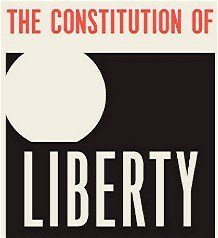
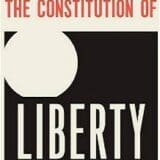
Progressive commenters reeling from the “right to work” defeat in Michigan have in turns unmasked and (grudgingly) admired proponents of the new law. The unmasking is fairly easy. Michigan governor Rick Snyder actually unmasked himself. After claiming that he was a moderate who would avoid polarizing fights, he pounced on the opportunity to jam “right to work” through a lame duck legislative session. And the policy itself is not hard to expose. “Right to work” is portrayed by proponents as freeing unwilling workers from paying union dues. But as many critics have pointed out, its wealthy proponents’ main purpose is to hobble labor by allowing some workers not to pay for the representation and protection unions are legally obligated to provide them.
As for the admiration, well, there is much to be learned from the planning and persistence of the rich donors and think tanks for whom spreading “right to work” laws beyond the former Confederacy has long been an aspiration.


“From the Ground Up” (or FTGU) is a new monthly video collaboration between LAANE’s Construction Careers Project and the UCLA Labor Center’s California Construction Academy (CCA). This series will show the fascinating, real-life stories related to construction, one of the best paths to middle-class opportunities for low-income communities in an era of globalization and education budget cuts.
FTGU will be profiling unique, diverse individuals within the construction trades, ranging from veterans to women to former convicts to youth of different incomes and ethnicities. We will also bring together experts on the construction industry, urban planners, economic theorists and others to look at the bigger picture of how construction jobs that build tomorrow’s public infrastructure can impact residents’ lives and, ultimately, our economy.
In this first video we interview Philip and Rich, two former veterans-turned-construction workers in Inglewood and Lakewood. Philip’s military experience and kids led him to sheet metal work, which has helped him find a greater sense of inner peace.
» Read more about: Vets: Be All You Can Be With Construction Jobs »


Many younger Americans probably know very little about Eleanor Roosevelt, and if their first encounter with her is the new film Hyde Park on Hudson, what they’ll learn is incredibly misleading and inaccurate. Other films – including Sunrise At Campobello (1960), the two-part Eleanor & Franklin HBO mini-series (1976), Eleanor, First Lady of the World (1982) and Warm Springs (2005) – have depicted different aspects of her life. But Hollywood can’t seem to make a film that accurately portrays the depth and influence of Eleanor’s radicalism.
Hyde Park on Hudson focuses on the relationship between her husband, President Franklin Roosevelt (played by Bill Murray) and his distant cousin Margaret “Daisy” Stuckley (Laura Linney) during a weekend in 1939 when the King and Queen of England are visiting the Roosevelts at their second home in upstate New York. The film shows FDR and Stuckley having a sexual love affair,
» Read more about: Eleanor Roosevelt: Still Waiting for Her Closeup »


Many of us felt a Capra-esque glow the morning after Election Day, happy that the Little Guy had triumphed over Big, Dark Money. And, to be honest, there was also more than a little schadenfreude to go around – what, with the spectacle of so many right-wing billionaires wasting so much money on their Cro-Magnon candidates. There’s a danger, though, in assuming their losses had taken the fight out of these tycoons – or that their lost millions somehow weakened their future political clout.
The fact is that the hundreds of millions of dollars spent on 2012 elections by the Koch brothers, Jerry Perenchio and others were little more than paper cuts to these men. They could probably recoup all their losses in a day by raising the cost of the oil they refine, or the price of plywood they sell, by an eighth of a cent. Every time you or I fill up our gas tanks or otherwise patronize one of the thousands of enterprises owned by conservative billionaires,
» Read more about: Casino Mogul Doubles Down Against Unions »
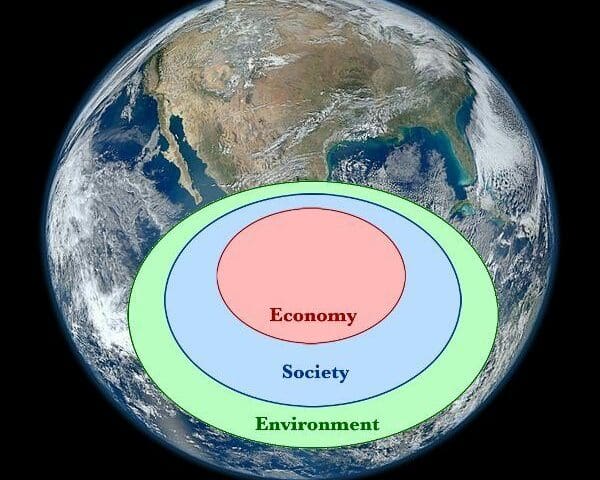

Turning over the calendar makes me think about nature. Partly, because it marks the end of one cycle of our lives and the beginning of another. Partly because at our house we literally take one calendar off the wall, look through its photographs of beautiful places, and replace it with a new one with its own photos of the world’s natural beauty that we will uncover one month at a time. The ritual reminds me that the earth is filled with beauty which we humans must sustain because it sustains us.
The problem, of course, is that in our drive for “progress” and “economic growth” we are drawing down too many resources too fast and making messes despoiling not only the earth’s beauty but also her capacity to keep us alive. Every day the news carries stories of waste, trash, unhealthy water, shrinking arctic ice and aberrant weather patterns.
» Read more about: A Sustainable Planet: Roadmaps for Survival »


California’s second-largest city has a progressive mayor, former Democratic U.S. House member Bob Filner — who beat his Republican rival by three points in November.
The 70-year old Filner spent 20 years in Congress. A reliable and articulate liberal – with high marks on his AFL-CIO, Americans for Democratic Action and Sierra Club scorecards – he’s a founding member of the Congressional Progressive Caucus and was a Freedom Rider during the early 1960s civil rights movement, spending two months in jail for “disturbing the peace and inciting a riot.”
Among his first actions as mayor, Filner took on the powerful San Diego Gas and Electric (SDG&E), accusing the investor-owned utility of failing in its commitment to alternative energy. He has also promised to pay more attention to the city’s neighborhoods, which many residents believe have been shortchanged by civic officials who are obsessed with developments downtown and in the Gaslamp Quarter.
» Read more about: San Diego: Republican City Gets Progressive Mayor »


New Year’s resolutions are a bitch.
You know you should eat more veggies, exercise regularly and do your bit to reduce suffering in the world. You want to learn Spanish (finally), take that oft-postponed Alaskan cruise and work through your co-dependency issues with Facebook. You’re convinced that meditation will reduce your stress, but the mere thought of fitting one more activity into your over-packed schedule only leaves you feeling more stressed out.
Shooting for the moon with our New Year’s resolutions — No more sugar! Run three miles a day! Be kind to your enemies! — and then falling short is a fast track to aggravation, self-loathing and the joyless consumption of massive quantities of week-old fruitcake.
Bite-sized goals are easier to digest. Climbing stairs instead of taking elevators or choosing a “bad” parking space to take a brisk walk might not please your aerobics trainer, but the health benefits will be substantial.
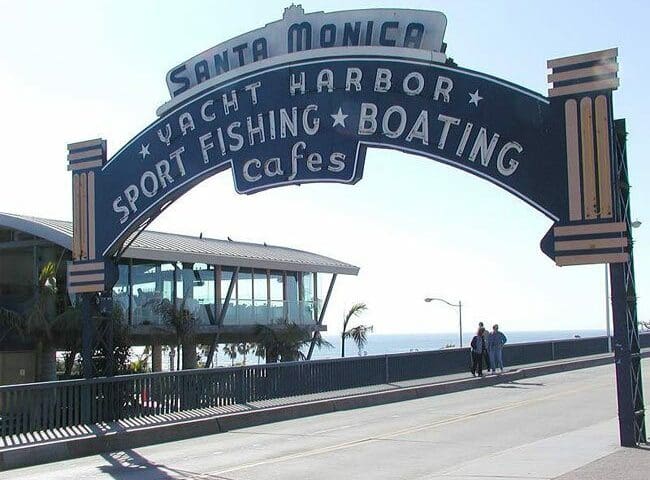

I spent this weekend as a Santa Monica resident for the first time in seven years. Interesting!
Technically my new digs are across the street, the dividing line between Santa Monica and Mar Vista. Coincidentally it’s the same area that I wrote about in my second murder mystery Rip-Off, the airport location of a clusterfuck shootout that shames my hero, Detective Dave Mason of the Santa Monica Police Department.
I’ve been in the city off and on, but as a visitor in these last few years. Now I have a base. My dog Lily and will be here from time to time in an effort to develop a plot for my next Dave Mason mystery.
The contrasts of Santa Monica fascinate me. I drive down Broadway and see the dark doorway of the union hall where I used to work. Three homeless men are huddled there.
» Read more about: Back to the Beach: An Activist Returns to Town »


UNITE HERE!-represented workers at Pleasanton, California’s Castlewood Country Club were locked out for two years before an NLRB administrative law judge finally ruled in their favor; Castlewood was on the hook for $1.8 million in back wages and benefits due to management’s refusal to bargain in good faith and animus towards the union. Overjoyed, 45 of 61 locked out Castlewood employees returned to their jobs. There’s just one problem: they haven’t gotten their back wages yet.
The NLRB’s ruling requires Castlewood management to pay back wages within 28 days or make some other settlement with workers, but as of late December, neither had occured. Castlewood management does have the opportunity to appeal the NLRB ruling, but lacks the option of total inaction. The failure to act had workers returning to a now-familiar mode of protest on the Thursday before Christmas. The East Bay Express was on the scene:
About 30 union members gathered Thursday morning outside Castlewood’s offices to urge management to pay up.
» Read more about: Teed-Off Workers Protest at Golf Course »


The cliff that America sidestepped with time to spare in 2012 was the one on the nation’s docks. On Friday, harbor operators and shippers reached an agreement with the union representing nearly 15,000 longshoremen on the East and Gulf coasts. The key point holding up the signing of a new contract was whether dockworkers would continue to receive royalties on the containers they hoisted on and off ships. With that issue resolved, apparently to the workers’ satisfaction, their union agreed to call off a year-end strike pending the resolution of less contentious points, and the nation was spared a work stoppage that would have slowed imports and exports to a relative trickle.
Had the workers walked, the attacks on them would be easy to imagine. Dockworkers are among this country’s best-paid blue-collar workers; many make more than $100,000 a year. They’re sitting ducks for union critics and are objects of wonderment for many Americans who can’t fathom how nonprofessional work can pay so much.
» Read more about: New Longshore Contract: Racing to the Top »


As a nation, we’ve already given countless billions of dollars in gifts to the one percent in the form of tax cuts, loopholes and corporate subsidies. If you think that’s not enough, here’s a list of more personal gifts you can buy for your favorite One Percenter.
In the 21st century, even the lowliest One Percenter can surround himself or herself with personal assistants, stylists and specialty chefs. For a truly unique experience, add a personal tanning butler to his or her entourage on a $3000/night booking at the Ritz Carlton. Even the dullest One Percenter will take a shining to this gift. The tanning butler will help apply sunbathing lotion and spritz you with Evian water while you sunbathe.
If your one percent friend is an expecting celeb,
» Read more about: Regifting for the Few Who Have Everything »


Most job seekers take care to scrub evidence of last night’s party from their social media profiles, but the employment consequences of more nuanced online interactions are still being determined. Just before the Christmas holiday, the National Labor Relations Board issued a decision ordering the reinstatement of five workers who were fired for responding to a co-worker’s criticism on Facebook. The decision goes some way to establish Facebook posts as protected under the National Labor Relations Act, and may discourage employers from basing personnel decisions on social media behavior in the future.
JD Supra reports on the case:
The case stemmed from a message that an employee of a nonprofit organization posted on Facebook outside of work hours. After Lydia Cruz-Moore told Marianna Cole-Rivera that she planned to discuss her concerns about employee performance with the Executive Director of Hispanics United of Buffalo, Inc.
» Read more about: NLRB Likes Facebook Defense of Fired Workers »


» Read more about: You Can’t Always Get What You Want: Post-Cliff Reactions »


The agreement passed last night is a breakthrough in beginning to restore tax fairness and achieves some key goals of working families. It does not cut Social Security, Medicare or Medicaid benefits. It raises more than $700 billion over 10 years, including interest savings, by ending the Bush income tax cuts for families making more than $450,000 a year. And in recognition of the continuing jobs crisis, it extends unemployment benefits for a year. A strong message from voters and a relentless echo from grassroots activists over the last six weeks helped get us this far.
But lawmakers should have listened even better. The deal extends the Bush tax cuts for families earning between $250,000 and $450,000 a year and makes permanent Bush estate tax cuts exempting estates valued up to $5 million from any tax. These concessions amount to over $200 billion in additional tax cuts for the 2 percent.


Source: Zina Saunders on YouTube


We begin 2013 awaiting the House of Representatives vote on tax legislation passed by the Senate early this morning. So we’re technically off the fiscal cliff but not really about to hit the ground – yet. Below are some initial perceptions of what the legislation means, beginning with the conservative American Spectator.
» Read more about: Tax Deal: Over the Cliff or Tied to the Tracks? »